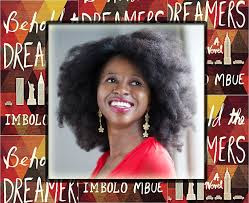I consider myself an avid reader, but I must guiltily confess that I read as means of escape and entertainment than I do for the purpose of learning. For this reason it took me a while to get into literary fiction in general and African literary fiction in particular. Literary fiction is great with its ‘classics’ like Bronte’s Jane Eyre or Sembene’s God’s Bits of Wood, but not what I’d call ‘fun, curl-up-on-the-couch reading’. Though I have read and appreciate aspects of the likes of Oyono’s The Old Man and the Medal and Ngugi’s Wizard of the Crow the books I have re-read, the books whose covers are worn from being carried around everywhere are those whose plots were structured to entertain me rather than pass on some satirical message. Pop-fiction is popular for a reason and up till a few years back I couldn’t say there was an African equivalent to the western pop-fiction I binged on as a young reader. Today the story is different, I can list a wide array of contemporary African literature offering a variety of themes to appeal to all sorts of readers. A new wave of Cameroonian writers are contributing to this new era in African literature and I couldn’t be happier.

Imbolo Mbue’s Behold the Dreamers is one of the new additions I’m particularly pleased about. When this book was announced in 2015 with a million dollar book deal my curiosity was piqued but I made a mental note not to expect much as several first-releases are often over-hyped (and in expectation is rooted all disappointment). Upon reading it last month however I was extremely pleased to find myself agreeing with the hype this book has received.
Behold the Dreamers takes an honest look at the ‘American Dream’ from the point of view of a Cameroonian immigrant family vis a vis their upper crust employers. The reader navigates the ups and downs of the Jongas’ and Edwards’ lives. With easy-to-relate to characters readers witness how experiences, painful and foreign, mature and change people, how some things remain the same despite differences in class, race and place of birth, but above all how each character defines home and craves fulfillment in different ways.
This is a story simply told, poignant yet without heavy didacticism, and obviously written with extreme caution. For the first time I read a book with Cameroonian characters my generation could relate to. I had to stop and appreciate how the author avoided as many generalisations as possible, often specifying an attribute to natives of Limbe rather than Cameroon at large. I felt as though she was aware this book would be picked apart and sought to cover all basis. She cautiously walked a tightrope avoiding poverty porn as much as ‘Afropolitanism’and tried her best to ensure that she wasn’t accused of “writing for a western audience” etc.
With African literature something is sure to be over-analysed nonetheless.
For me, Mbue makes a laudable attempt at depicting the immigrant struggle hidden in the small things like Jende looking for someone to rejoice with upon landing his job with Mr. Edwards “He needed to rejoice with someone who knew his name and his story” and Neni re-discovering faith and singing gospel choruses far from home where she had learned them but not practiced.
What I loved most about the story (aside from how easy it is to curl up with because you’re getting an intriguing plot rather than a sermon/lesson) and what I feel has been overlooked in reviews and discussions is the transformation from aspiring after the American dream to configuring what I perceive to be the ‘Cameroonian Dream’. The former dream entails making it in the US with a middle-class income, ‘papers’, a house with a mortgage and as Neni’s friend Fatou states shopping at “fine white people store like Target”. The latter dream, the ambitions of a majority of Cameroonians which till this time had not been verbalized is, to ‘fall bush’, hustle by all means possible and return home financially able to defy the odds of unemployment, ‘buy’ a better social status and live comfortably where one knows for sure they cannot be treated as alien because they belong. The story reminds us that while it is easy to get trapped abroad either by becoming too used to the comforts or for lack of choice, the majority of us left because we had to rather than because we want to.
The Jongas may not have achieved one dream, but they retained their dignity, and left us with a happy ending inspiring hope beyond “bush”.
Behold the Dreamers has been compared to Adichie’s Americannah, I am of the opinion that it’s a poor comparison. While Adichie’s third novel is essentially a love story which boldly covers a variety of themes above all an African immigrants perception on race relations in the US, Mbue’s debut novel focuses particularly on exploring immigrant survival, aspirations, adjustments and the universality of human needs, pains and flaws. To compare them would be to compare an apple to a bowl of fruit salad with chopped apples in it.
Suffice it to say I thoroughly enjoyed this book and would encourage all Cameroonians to read it. Before you go, I’m interested in you opinion on “the Cameroonian Dream” do we have one? What do we as individuals and a people envisage? I look forward to your comments!